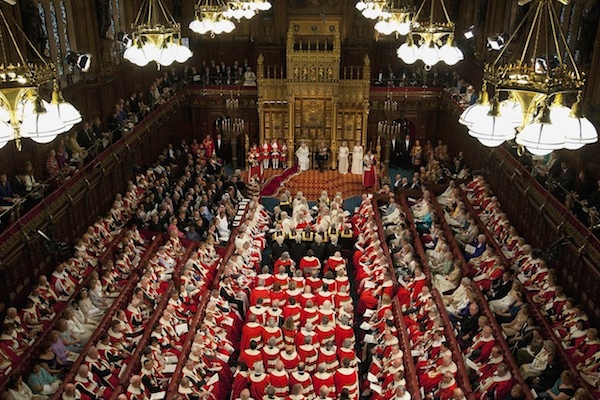Mr Justice Tugendhat delivered a ferocious verdict last week. Undercover reporters from the Sunday Times claimed they had found Peter Cruddas, co-Treasurer of the Conservative Party, offering influence in return for wodges of cash. With damning language, the judge found against the paper, leaving it with costs and damages of around £700,000.
I don’t want to discuss the merits of the case. Cruddas, who had to resign when the story came out, may have been unjustly maligned. Conversely, the Sunday Times is going to the Court of Appeal, so it may be that the paper is the true victim. I want to look at the judge’s reasoning instead, because it unconsciously reveals how platitudes, evasions and logical fallacies hide corruption in British public life.
If I have read him right, Tugendhat believes that corruption cannot exist in the British state because nothing the British state allows can be corrupt. I will let the learned judge take you round his circular reasoning in his own words.
“The present system of party funding, whether desirable or not, is lawful and practical, whereas other possible systems, such as funding out of taxation, or mass membership of political parties, are either not provided for by law, or not in practice available to the parties, however much they might wish that they were. This court cannot declare to be corrupt, as a matter of fact, the system of party funding authorised by Parliament and adopted by the Conservative and other parties. That may or may not be an opinion which people may honestly hold. It is not true as a matter of fact that the system is corrupt.”
Where to begin? One of the many pernicious aspects of our libel law is that it allows judges to express personal prejudices that have no place in a courtroom. It is not up to a judge to start pontificating on the practicality or otherwise of state funding. These are political questions that ought to be beyond his brief. Meanwhile his statement that ‘this court cannot declare to be corrupt, as a matter of fact, the system of party funding authorised by Parliament and adopted by the Conservative and other parties’ manages to sum up everything that is wrong with British complacency in one sentence.
As if to show how, a new honours list came out within days, and men who had donated money to the Conservative, Labour and the Liberal Democrats received peerages in return. They had bought seats in Parliament – and seats for life, mark you. The electorate can no more throw them out of the Lords than it can send them there in the first place. I listened to the debates on the radio – and took part in a couple myself. At no point did anyone defending the status quo seem at all concerned that places in the legislature were up for sale. Doubtless they would be outraged if politicians in other countries auctioned honours and parliamentary seats. But like Mr Justice Tugendhat, they cannot admit the existence of corruption in Britain.
The Crown Prosecution Service showed how it can be ignored when the Blair government was exchanging ermine for money. You would never guess it, but it is a criminal offence to sell honours. But the CPS decided: ‘If one person makes an offer, etc., in the hope or expectation of being granted an honour, or in the belief that it might put him/her in a more favourable position when nominations are subsequently being considered, that does not of itself constitute an offence. Conversely, if one person grants, etc., an honour to another in recognition of (in effect, as a reward for) the fact that that other has made a gift, etc., that does not of itself constitute an offence… For a case to proceed, the prosecution must have a realistic prospect of being able to prove that the two people agreed that the gift, etc., was in exchange for an honour.’ Which is close to impossible, unless GQHQ were to start bugging party leaders’ conversations.
I don’t think the current venality of public life can continue. Not because I have any faith in basic morality triumphing or investigative journalists exposing the scandal (the judges will put a stop to that). Rather I pin my hopes on the absurdity of the system becoming too much to bear. If we carry on the way we are, we will soon have twice as many unelected peers, a fair percentage of whom will have paid for their seats or got there by sucking up to party leaders, as elected MPs. The old joke about Britain being a banana republic but without the bananas will seem a little less funny.
Meanwhile, the polls tell me that a defence of the indefensible may be about teach the Conservative Party a profoundly satisfying lesson. If it loses power by a handful of seats at the next election, it will be because it did not get boundary reform through. It did not get boundary reform through because its idiot backbenchers could not accept the Liberal Democrat demand for an elected House of Lords in return. It would be wonderful if the Conservatives were removed from office because of their defence of an institution, which, if I may use plain English in England, stinks – for all Mr Justice Tugendhat’s effort to mask the stench.







Comments